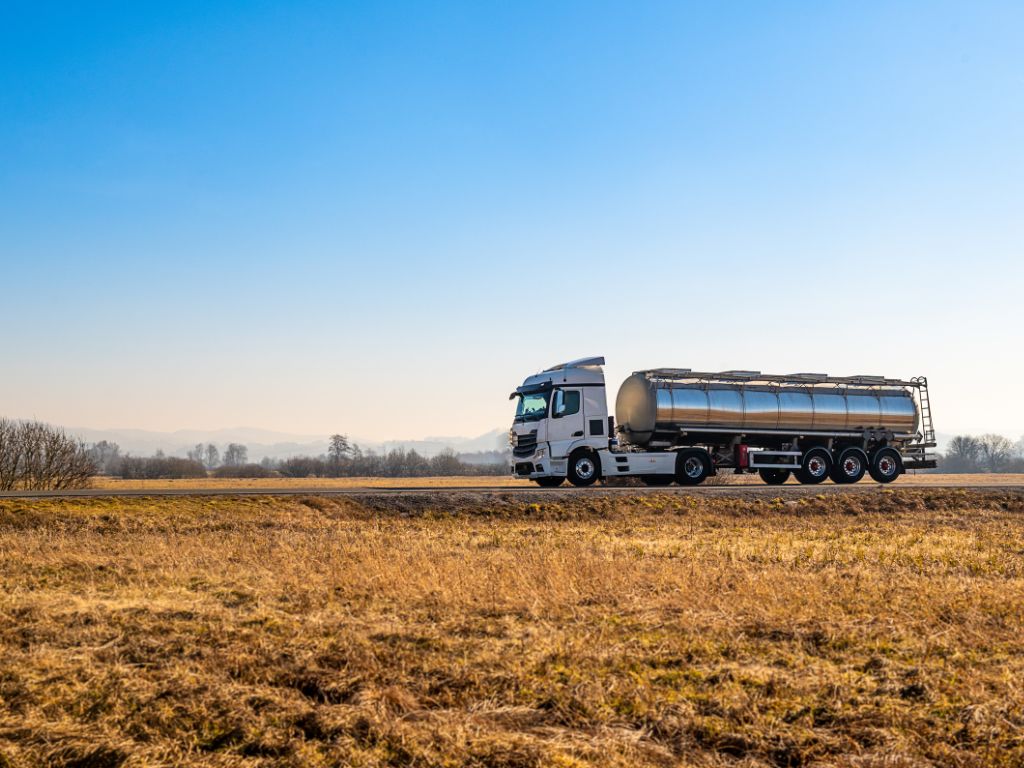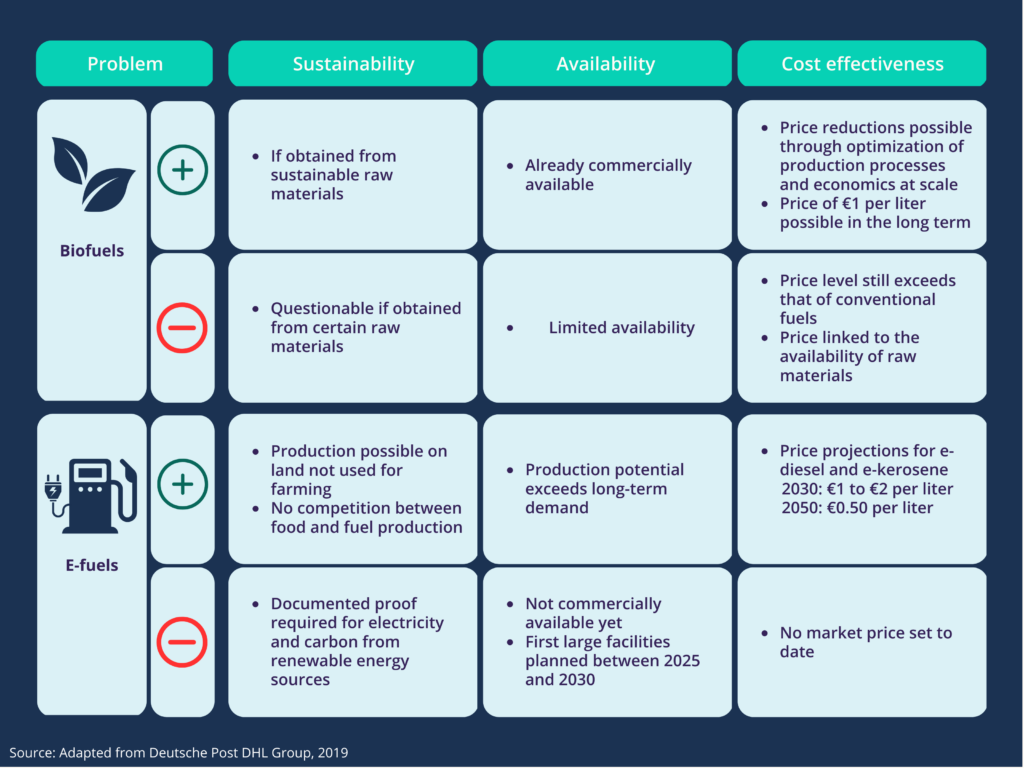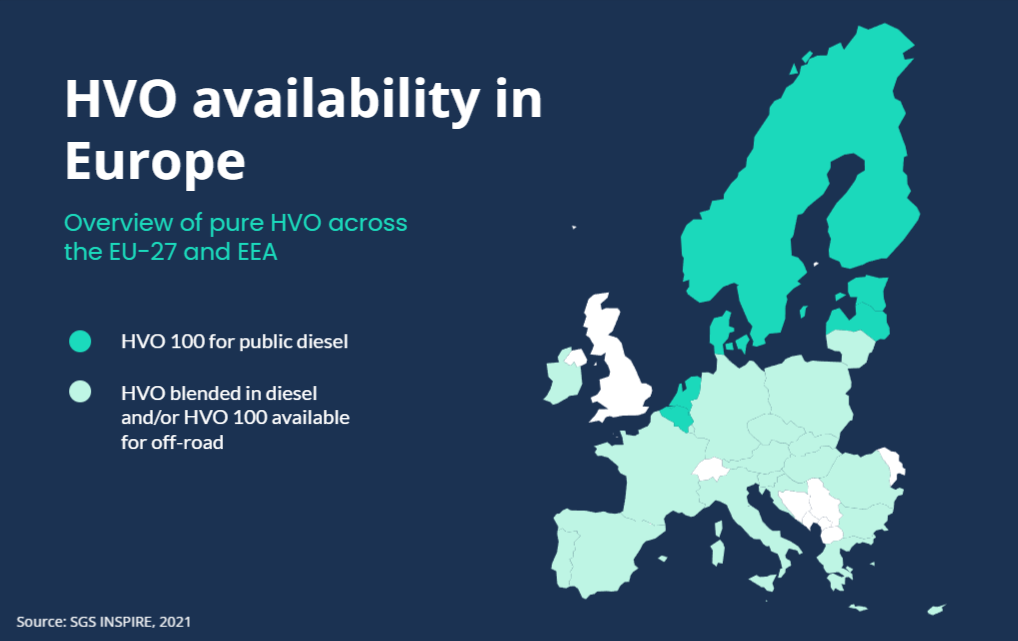With the heated debate on the combustion engine phase-out for new cars and trucks within the EU, the question of the efficiency of alternative fuels and their role in achieving climate targets once again became a subject of discussion. It became clear that every development around alternatives to fossil fuels always raises the question of their actual sustainability improvements.
Green Logistics requires action
Despite the prevalence of digital connectivity, the logistics industry continues to depend on a physical network for transporting goods from one location to another. This network serves as the inevitable linking element of global trade, which fuels economic growth and prosperity on a global scale. But precisely this role involves great responsibility in contributing to a more sustainable future. This presents a challenging task for carriers, who face immense (regulatory and market) pressure to act quickly and implement effective solutions that can mitigate their environmental impact with immediate effect while maintaining operational efficiency. However, promising solutions such as electric driving systems are not yet at the stage of maturity to be used for long-haul shipments using heavy-duty trucks – let alone maritime or aviation transport – whereby alternative fuels for a rapid reduction of emissions are gaining in importance.
The range of sustainable fuel options spans from traditional fuel blends to cutting-edge technologies. To assess the respective emission reduction effectiveness of alternative fuels, it is important to categorize them into three distinct groups [1].
- 1st generation from plant substances obtained from food or animal feed such as rapeseed, soya, but also palm oil.
- 2nd generation, which synthesises fuel from residues such as straw, food waste or animal waste with the help of various chemical processes.
- And finally, there are the so-called e-fuels, which do not require biomass. Here, the CO2 is captured in the air using technical means and then converted into fuel.
With the goal of climate neutrality by 2045 in Germany, regenerative fuels need to play a significant role to compensate for the challenges faced in the fleet change. Change towards fully electrified fleets is not progressing fast enough to significantly reduce CO2 emissions already today. Similarly, due to their high energy input in production and the associated costs, e-fuels are not yet marketable for the masses [2]. Therefore, biofuels are clearly coming to the fore as an emission reduction measure in the area of transportation and goods transport, mainly due to two reasons – availability and costs.
Promoted as a clean alternative to fossil fuels and supported by a range of EU policies and measures [3], such as the Renewable Energy Directive (RED) from 2009 and RED II revision, the comparatively inexpensive biofuels received a considerable boost and were able to gain significant market share, especially if used in blends. By blending, the climate targets can be implemented more quickly for existing fleets; there is no need to wait for a whole vehicle fleet to be replaced. Similarly, the entire existing infrastructure, can continue to be used to a large extent. Therefore, a comparatively fast introduction of biofuels was possible, even though mostly as blends and not “pure” (biofuels “pure”, e.g. so-called HVO 100, already introduced in multiple EU member countries and EEA) [4].
The hidden cost of biomass biofuels
A good illustration of the disadvantages of biofuels can be found in the example of Hydrotreated Vegetable Oil (HVO), a mixture of fuels of the first and second generation. Using hydrotreatment, a chemical progress in which the feedstock (vegetable oils or animal fats) consisting of triglycerides and fatty acids undergoes a chemical reaction with hydrogen in the presence of a catalyst, a fuel with improved properties compared to traditional biodiesel is developed.
One of the sticking points with HVO are the processed fatty oils. Residues such as cooking oil or animal wastes are rather unproblematic, but specially cultivated vegetable oils from rapeseed or oil palms are also used. However, their processing is controversial, as they are then not available for consumption as food and often not cultivated in accordance with sustainable principles. More than half of the rapeseed oil in the EU flows into the tank of cars and trucks and so the German Federal Ministry intends to ban edible oils as fuel altogether by 2030. Another development in the sector of the 1st generation of biofuels has been the debate on the use of palm oil, mostly imported from Indonesia. The establishment of palm oil plantations requires clearing rainforest areas, resulting in GHG emissions from deforestation and loss of biodiversity. Since 1 January 2023, palm oil is no longer permitted as a fuel because the German government has declared oil palm cultivation to be harmful to the environment. The objection to targeting planting for the purpose of fuel use has increased in light of food security and land use change arguments.
This leaves biomass from waste, such as used cooking oil (UCO), but these are limited compared to the massive demand of the transport sector, and challenging to capture and recycle in small, distributed quantities. Because of the scarcity, the market is currently seeing absurd prices and routes for residual materials [5]. For example, UCO sometimes fetches higher market prices than the vegetable oil that was previously filled into deep fryers [6]. Combined with the EU’s dependence on UCO imports and stricter regulation still being developed, this market situation entailed a high fraud risk [7].
These developments clearly indicate how important it is to consider the full lifecycle emissions of biofuels, including emissions associated with feedstock production, processing, transportation, and combustion. And to avoid simplified emission calculation, using vague averages as emission factors, or assuming optimal reduction effectiveness of biofuels. The core element to a successful implementation of biofuels in the decarbonization mix is trust in the effect. This poses responsibilities and high accuracy to anyone involved in the value chain.
Beyond today
When considering alternative fuels, it becomes clear time and again that there is no simple solution to quickly replace fossil fuels and achieve immediate reductions. Isolated solutions are not the silver bullet to decarbonize an inherently complex supply chain with its diverse transportation modes. It takes a cross-sectoral collaboration between interest groups to increase competitiveness against traditional fossil fuels.
One thing is for certain – over the next decades, alternative fuels will pay a critical role in climate impact reduction of the transport industry. But to make it beneficial for our climate, awareness, the level of detail, and reliable data is required along with governance frameworks to give no chance for greenwashing.
For more on the topic of biofuels carbon reduction potentials, follow us on LinkedIn, to not miss our next article discussing the calculation approaches and climate impact of biofuels in detail.
—
Sources:
[4] https://inspire.sgs.com/news/102941/europe–pure-hvo-available-in-nine-european-countries
[5] https://www.iea.org/reports/is-the-biofuel-industry-approaching-a-feedstock-crunch





